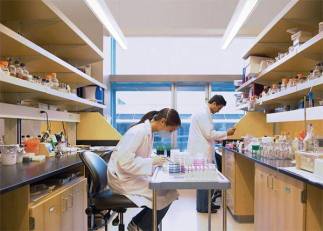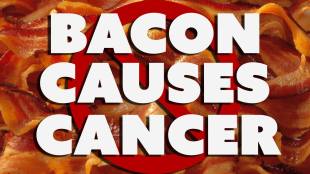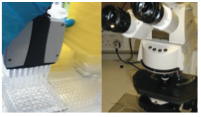By Ajay Shah

2nd year medical student Ajay Shah, writes about the anxiety surrounding lab research and publications- something all medical students can relate to!
“Have you done any research?”
“Yeah actually I have a publication in the Canadian Journal of Obstetrics, I spent my summer doing a meta-analysis for Mount Sinai”
“Oh, so do you want to do obstetrics?”
“No, I just managed to get the position through a friend. I don’t actually care about it, research is kind of boring”
I’ve had this conversation with so many students, at St. Andrews and otherwise. It seems to be hammered into us from an early age. “Get published, get hired” is the prime directive for stethoscope-wielding youth. For Canadian students, the pressure is multiplied, as the prestigious residency positions will only accept the most credentialed, cited and publication-producing students.
____________________________________________________________
So, we slave. I am no exception to this rule, I write from my experiences. In high school, I spent most of a year doing a research project at Princess Margaret Hospital. Today, if you saw me standing with my poster at conferences, you’d be smitten by my passionate descriptions of MTS Assays and In silico analysis. If you saw me back then, in that stuffy lab from 5-7 PM everyday, micropipetting row upon row, redoing protocol due to calculation errors, waiting for colonies to incubate, you’d feel nothing but pity.

‘you’d feel nothing but pity’
And that is the reality of lab research. It is boring. You will fail. Even when you do everything right, you will get negative results, contamination, and false positives. My project looked at the role of microRNAs in human breast cancer cells, and we received negative results with the first two microRNAs we tested. After 8 months in the lab, we concluded that microRNA-449 levels were correlated with tumour viability, then found 4 genes that potentially contribute to tumourigenesis. Peanuts, in the big picture – but another tree planted in the forest of cancer research.
-‘Even when you do everything right, you will get negative results, contamination, and false positives’-
I am not trivializing lab research, nor am I insinuating that incremental accomplishments are meaningless. I can imagine nothing more fulfilling than conducting scientific inquiry into one’s passions. I am simply trying to relate a feeling I had to one that many of you may experience, the feeling of purposeless disappointment. The infinite thought loop of “What exactly have I accomplished?” to “Was that a worthwhile use of my time?” to “What did I gain from that?”, rinse and repeat.
I believe that feeling arose because I was doing research for all the wrong reasons. I was doing that project to get my name on a paper to improve a university application to increase my odds of getting a slightly better education which would, theoretically, ultimately help me achieve the abstract notion of “success”. The idea of success instilled in us by our superiors, mentors and role models, a concept I could hardly visualize, let alone materialize. My search for material scientific findings had an ulterior purpose, and my findings therefore seemed purposeless and immaterial.
-‘that feeling arose because I was doing research for all the wrong reasons’-
So to all those go-getters doing research this summer: I beg you, be wary. If you lack passion in your topic, and are simply doing research to get published, think twice. Perhaps an unpaid shadowing position may help you learn more, think more, and gain a sense of purpose. Or perhaps this mental purgatory is a necessity that we medical students must pass through on our journey – jumping through hoops, dotting I’s and crossing T’s, going through the motions, as we wait for our careers to begin. Whatever it may be, I suppose it can’t hurt to ask – “Hey, do you know anyone hiring students to work in a research lab?”
____________________________________________________________
If you are interested in a particular medically-related topic, please submit your article to medsaint1@gmail.com. As per usual, there is no deadline!




